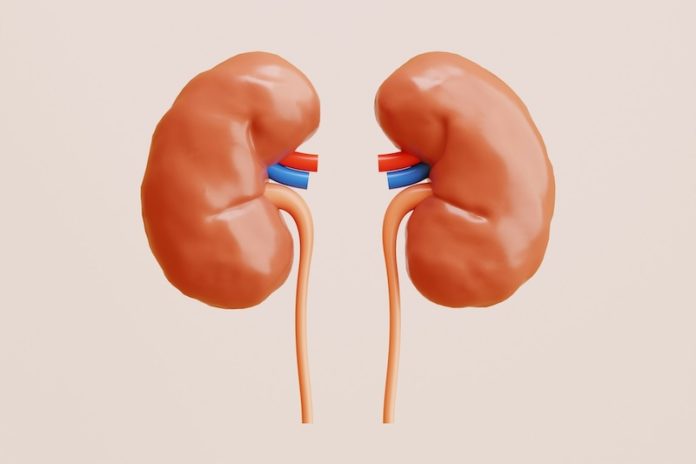
A recent study from the University of Bristol has uncovered a potential new way to slow the progression of diabetic kidney disease, a condition that affects around 40% of people with diabetes.
This breakthrough could be life-changing for the 4.8 million people in the UK with diabetes, who are four times more likely to require dialysis or a kidney transplant.
How a Common Blood Pressure Drug May Protect the Kidneys
Current treatments for diabetic kidney disease include spironolactone, a medication primarily used to lower blood pressure. Clinical trials have shown that this drug can reduce protein leakage into urine, a key sign of kidney disease. However, spironolactone also has side effects, such as raising potassium levels, which makes some doctors hesitant to prescribe it.
To better understand how spironolactone protects the kidneys, the research team investigated its effects at a microscopic level. They discovered that the drug helps preserve the glycocalyx, a gel-like protective layer on the blood vessels inside the kidney. Diabetes can damage this layer, but spironolactone appears to prevent this damage, keeping kidney function intact.
Using patient kidney biopsies, the team developed a new method to measure glycocalyx thickness, confirming that the layer is thinner in diabetes and that spironolactone helps maintain it. The study also found that spironolactone reduces the activity of matrix metalloproteases, a group of enzymes that break down the glycocalyx.
The Next Steps in Research
Since spironolactone has side effects, researchers are now exploring alternative drugs that target matrix metalloproteases without causing high potassium levels. By repurposing other medications, they hope to develop safer treatments for diabetic kidney disease more quickly.
This study, led by Dr. Matthew Butler, represents an important step in finding new therapies to protect the kidneys in diabetes. If successful, it could slow down kidney disease progression, reducing the need for dialysis and transplantsfor millions of patients.
How to Protect Your Kidneys If You Have Diabetes
If you have diabetes, there are several steps you can take to keep your kidneys healthy:
- Control Your Blood Sugar: High blood sugar can slowly damage your kidneys. Follow your doctor’s recommendations to keep your levels within a healthy range.
- Manage Blood Pressure: High blood pressure is a major risk factor for kidney disease. Aim to keep it at or below 130/80 mm Hg with lifestyle changes and medication if needed.
- Eat a Kidney-Friendly Diet: Reduce salt and unhealthy fats while eating more fruits, vegetables, whole grains, and lean proteins to protect kidney function.
- Exercise Regularly: Physical activity helps maintain healthy blood sugar and blood pressure. Aim for 30 minutes of moderate exercise on most days.
- Quit Smoking: Smoking damages blood vessels, worsening kidney disease. Quitting can slow disease progressionand improve overall health.
- Take Medications as Prescribed: If you have diabetes or high blood pressure, follow your doctor’s instructions on medication to protect your kidneys.
- Get Regular Kidney Tests: Routine blood and urine tests can help detect kidney problems early, making treatment more effective.
Final Thoughts
This new research offers hope for better treatments for diabetic kidney disease. While spironolactone has its benefits, scientists are working to find safer alternatives that provide kidney protection without harmful side effects.
In the meantime, controlling blood sugar and blood pressure, following a healthy lifestyle, and getting regular check-ups are the best ways to protect kidney health.
This study was published in JCI Insight and adds to growing efforts to prevent and treat kidney disease in diabetes more effectively.
If you care about diabetes, please read studies about a cure for type 2 diabetes, and these vegetables could protect against kidney damage in diabetes.
For more information about diabetes, please see recent studies about bone drug that could lower risk of type 2 diabetes, and results showing eating more eggs linked to higher risk of type 2 diabetes.
Copyright © 2025 Knowridge Science Report. All rights reserved.



